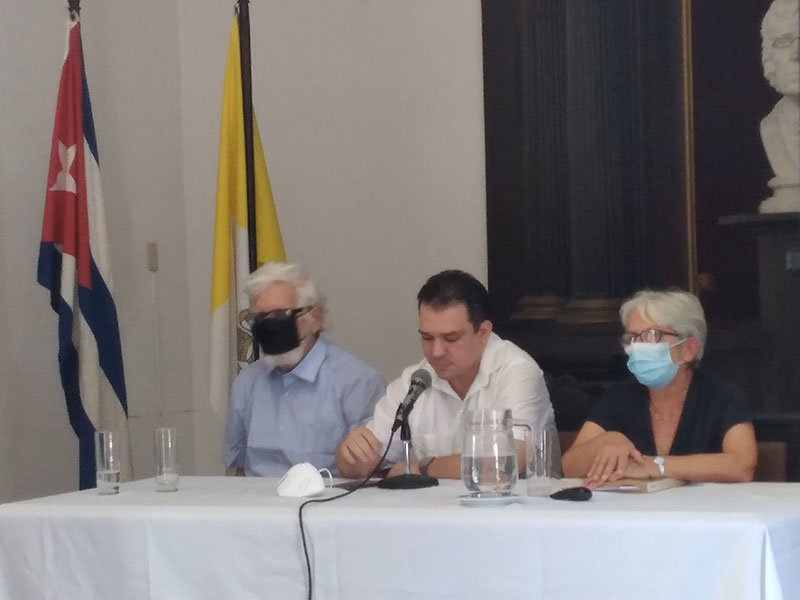by Sergio Lázaro Cabarrouy Fernández-Fontecha
Photographer Sergio Lázaro Cabarrouy Fernández-Fontecha
Havana, April 26, 2022: The Félix Varela Institute held a new edition of its cycle of academic meetings “Change of Times” with a moral, bioethical, legal and sociological look at Assisted Human Reproduction, last Saturday, April 23 , in a morning that featured a conference, panel and a rich exchange between the participants, in the Aula Magna of the homonymous Cultural Center.

The conference was given by the priest and doctor José María Pardo, professor at the University of Navarra in Spain, who addressed the underlying moral problems behind many of the practices of Assisted Human Reproduction, highlighting the denial of the conjugal act and the instrumentalization of being human, for which he offered alternatives such as “in Vivo” reproduction. Fr. José María carried out an up-to-date statistical and phenomenological review of the consequences of several of the reproductive practices discussed.
The panel was made up of Dr. Rolando Rogés Machado, who addressed bioethical issues, MsC Yasmany Ibaldo Pérez Marañón, who addressed legal issues, and Dr. Teresa Díaz Canals, who did so from a sociological point of view.
Dr. Rogés Machado spoke about the embryo as a member of the human species and in development, showing scientific arguments that support the dignity of said embryo from the moment of the union of the ovum and the spermatozoon. The MsC. Pérez Marañón showed the legal problems that many of the Assisted Reproduction practices pose, as well as their solutions or the lack thereof in Cuba and in the world, Dr. Díaz Canals finally showed the consequences of several of these techniques for the tissue social, emphasizing the consequences for women who are often the most exploited.
The cultural moment was enlivened by the Vox Cordis Choir directed by Ramón Leyva, which offered a Cuban and international repertoire. After a snack, the academic morning ended with an open debate with interventions from the participants, questions, and answers from the panelists and speaker.
On April 23, three academic events coincided at Varela. Attendance at “Cambio de Época” was lower than on other occasions. This cycle of conferences is part of the training offered by the Institute of Ecclesiastical Studies, which had begun before the Pandemic.
